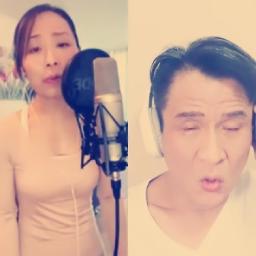

Wan is the actually illegitimate son of Tsing Tsung (青松), the head of the Wudang school, however as a Taoist sect sworn to chastity, Tsing dare not acknowledge Wan as his son, nor out of fear of discovery accept him as an official pupil of the school. Every night since childhood Wan has secretly practised martial arts in the woods taught to him by a masked teacher whose identity is a secret even to him. ( March 2015) ( Learn how and when to remove this template message)Īlthough by day Wan Fei Yeung appears to be devoid of martial ability, a simple bumpkin and the butt of practical jokes and the contempt of the schools pupils, he is in fact the most able martial artist of all the youngsters at the school. Please help improve it by removing unnecessary details and making it more concise. Xu Xin, b.This article's plot summary may be too long or excessively detailed.Hsu Wei Lun (1978 – 2007), Taiwanese actress.1967, Hong Kong singer, actor, quarter of Big Four and 1st runner up of the 5th annual New Talent Singing Awards Lady Xu Mu, first recorded female poet in Chinese history.The name is transliterated as Hứa in Vietnamese. Philip Jaisohn, first Korean to become a U.S.

Tsui Po Ko, renegade officer in the Hong Kong Police Force.Paula Tsui, retired pop singer from Hong Kong.Xu Xiangqian, Chinese Communist military leader.
 Xu Shichang, President of Republic of China ( Beiyang Government). Xu Guangqi, Ming dynasty scholar-official. Xu Deshuai, a Hong Kong footballer playing for South China. However, this theory does in fact fit nicely with the story told of Xu You, where the sage, upon hearing Emperor Yao's invitation to become the overseeing governor of 9 provinces, promptly washed his ears in the Ying River (the largest tributary of the Huai River with its origin in Henan) to show that the emperor's promise of fame and fortune had sullied his ears. Later on in the history of ancient China, it became popular among scholars of the time to postulate that Xu You must have been the ancestor of that feudal lord who had changed his name to Xu. Xu You's descendants carried on the surname of their famed ancestor, thereby establishing Xu as a surname. This may be confusing, but as an example, take the Han Dynasty emperors, who had names like Han Gaozu (meaning 'Gaozu', of the 'Han'), but in actuality carried the surname of Liu.Ī different theory states that the surname originated with the fabled Xu You (许由), a sage of the time of the fabled Emperor Yao (not to be confused with the later Xu You (许攸) who was a military strategist of the warlord Yuan Shao during the late Han Dynasty period). The Xu feudal state had been bestowed on a lord with the surname of Jiang (姜), thereby founding the Xu clan. The most credible one states that the surname Xu originated from the feudal state of Xu (许) (the area of Xuchang (许昌) in present day Henan) during the Zhou Dynasty. The surname Xu (許/许) has multiple theories regarding its origin. Vietnamese of Chinese heritage with the last name Hứa are not related to those with the last name Hua in Mandarin. In Japan and the Philippines the name is written as Kyo and Co/Ko.Ĭhinese immigrants of this last name Xǔ simplified Chinese: 许 traditional Chinese: 許 who emigrated to Vietnam translated the name to Hứa. It is name is pronounced Seo and Heo (also romanized So and Suh). In Cantonese, it is written as Hui/Hooi/Hua. , in Gan Hi/Hé, in Min Nan (spoken in Singapore and Malaysia), the name is written as Koh/Khoh/Khor/Khaw. In Jyutping, 許/许 is written as Heoi2, in Pe̍h-ōe-jī as Khó In Chinese, the pronunciations of the two names differ in tone: Xú and Xǔ. They are both pronounced somewhat like shoo, with the oo pronounced as in the French u or German ü, a sound with no exact equivalent in most dialects of English. simplified Chinese: 许 traditional Chinese: 許 pinyin: Xǔ Wade–Giles: hsü 3, also spelled Hui or Hii. Chinese: 徐 pinyin: Xú Wade–Giles: hsü 2, also spelled Hsu ( Wade-Giles Hsü) or Chui or Tsui or Tu or Eu. Xu can be a pinyin transliteration of one of several Chinese surnames:
Xu Shichang, President of Republic of China ( Beiyang Government). Xu Guangqi, Ming dynasty scholar-official. Xu Deshuai, a Hong Kong footballer playing for South China. However, this theory does in fact fit nicely with the story told of Xu You, where the sage, upon hearing Emperor Yao's invitation to become the overseeing governor of 9 provinces, promptly washed his ears in the Ying River (the largest tributary of the Huai River with its origin in Henan) to show that the emperor's promise of fame and fortune had sullied his ears. Later on in the history of ancient China, it became popular among scholars of the time to postulate that Xu You must have been the ancestor of that feudal lord who had changed his name to Xu. Xu You's descendants carried on the surname of their famed ancestor, thereby establishing Xu as a surname. This may be confusing, but as an example, take the Han Dynasty emperors, who had names like Han Gaozu (meaning 'Gaozu', of the 'Han'), but in actuality carried the surname of Liu.Ī different theory states that the surname originated with the fabled Xu You (许由), a sage of the time of the fabled Emperor Yao (not to be confused with the later Xu You (许攸) who was a military strategist of the warlord Yuan Shao during the late Han Dynasty period). The Xu feudal state had been bestowed on a lord with the surname of Jiang (姜), thereby founding the Xu clan. The most credible one states that the surname Xu originated from the feudal state of Xu (许) (the area of Xuchang (许昌) in present day Henan) during the Zhou Dynasty. The surname Xu (許/许) has multiple theories regarding its origin. Vietnamese of Chinese heritage with the last name Hứa are not related to those with the last name Hua in Mandarin. In Japan and the Philippines the name is written as Kyo and Co/Ko.Ĭhinese immigrants of this last name Xǔ simplified Chinese: 许 traditional Chinese: 許 who emigrated to Vietnam translated the name to Hứa. It is name is pronounced Seo and Heo (also romanized So and Suh). In Cantonese, it is written as Hui/Hooi/Hua. , in Gan Hi/Hé, in Min Nan (spoken in Singapore and Malaysia), the name is written as Koh/Khoh/Khor/Khaw. In Jyutping, 許/许 is written as Heoi2, in Pe̍h-ōe-jī as Khó In Chinese, the pronunciations of the two names differ in tone: Xú and Xǔ. They are both pronounced somewhat like shoo, with the oo pronounced as in the French u or German ü, a sound with no exact equivalent in most dialects of English. simplified Chinese: 许 traditional Chinese: 許 pinyin: Xǔ Wade–Giles: hsü 3, also spelled Hui or Hii. Chinese: 徐 pinyin: Xú Wade–Giles: hsü 2, also spelled Hsu ( Wade-Giles Hsü) or Chui or Tsui or Tu or Eu. Xu can be a pinyin transliteration of one of several Chinese surnames:







 0 kommentar(er)
0 kommentar(er)
